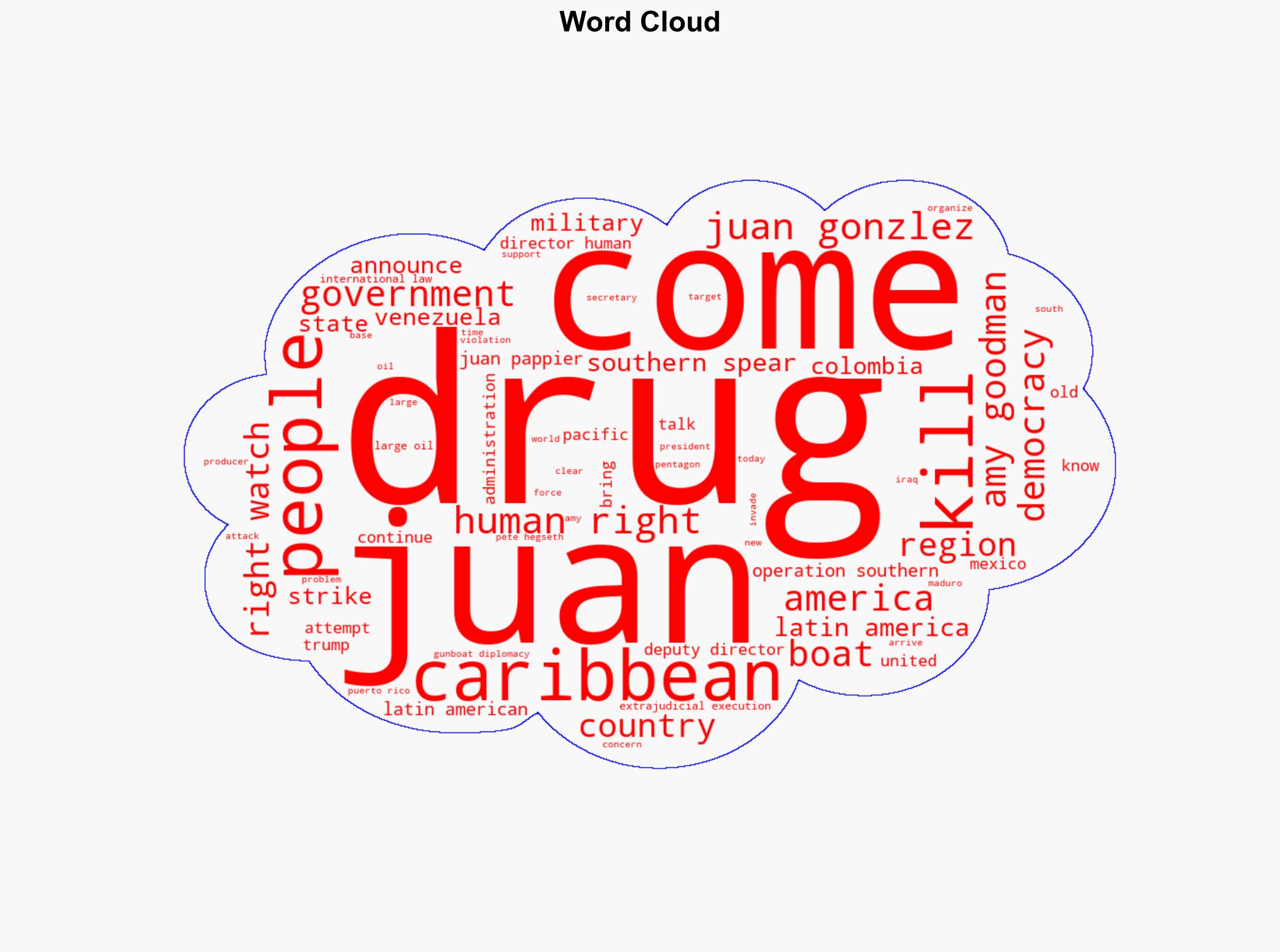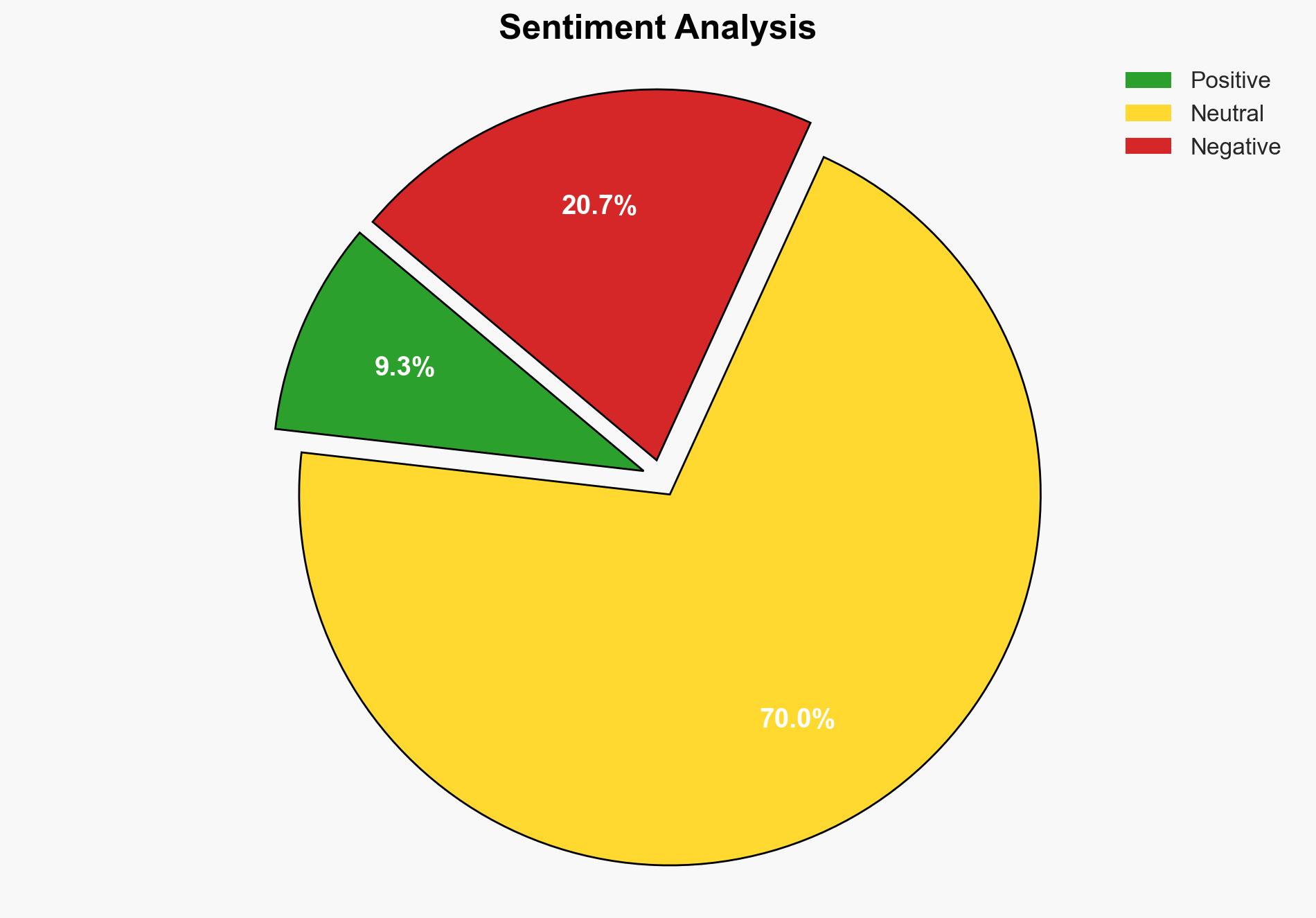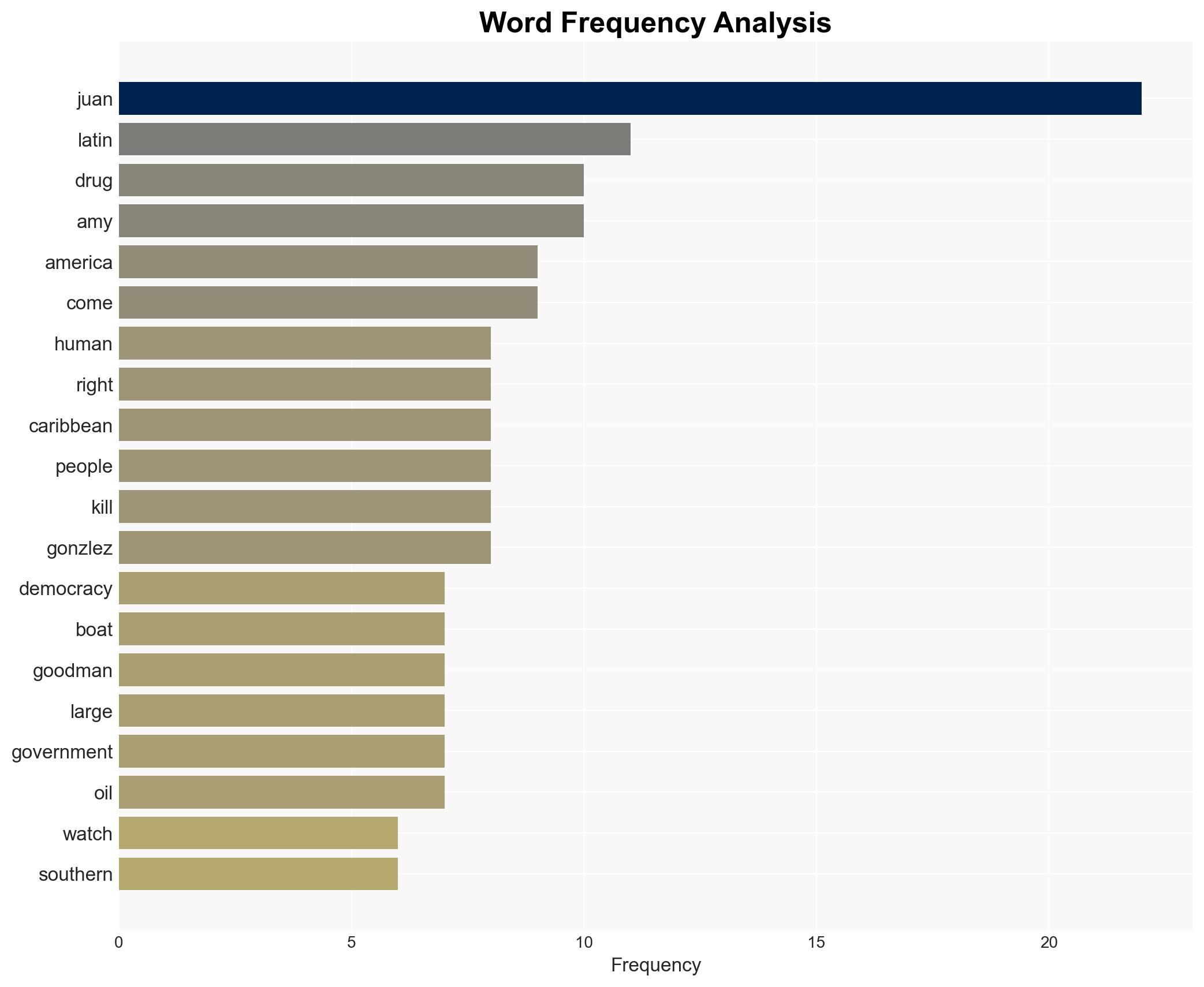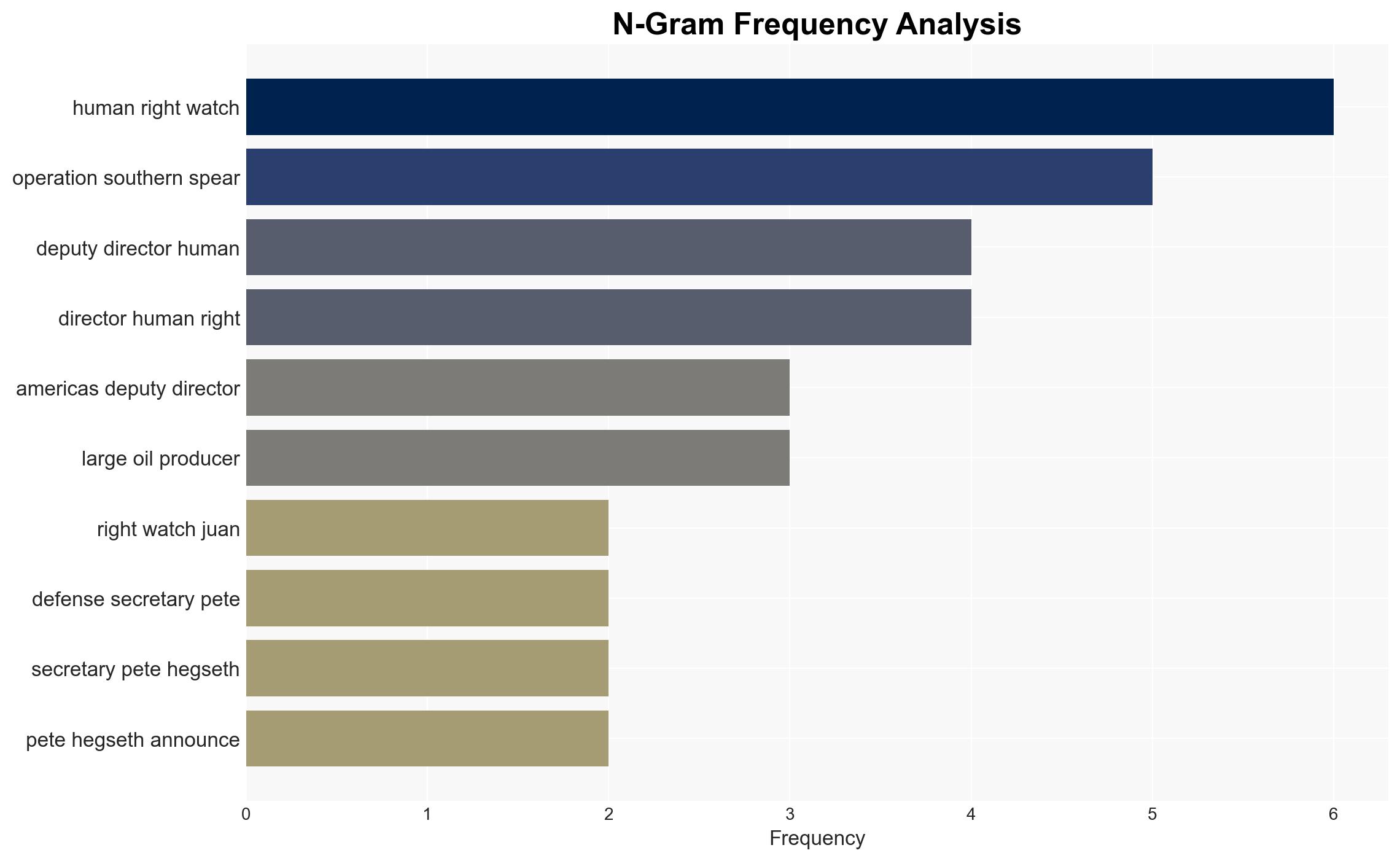Gunboat Diplomacy US War in Latin America Feared as Hegseth Launches Operation Southern Spear – Democracy Now!
Published on: 2025-11-14
AI-powered OSINT brief from verified open sources. Automated NLP signal extraction with human verification. See our Methodology and Why WorldWideWatchers.
Intelligence Report: Gunboat Diplomacy US War in Latin America Feared as Hegseth Launches Operation Southern Spear – Democracy Now!
1. BLUF (Bottom Line Up Front)
There is a moderate confidence level that Operation Southern Spear is primarily a strategic maneuver to counter narcoterrorism and assert US influence in the region, rather than a prelude to broader military engagement. However, the operation risks escalating tensions with Latin American countries and international human rights organizations due to perceived violations of international law.
2. Competing Hypotheses
Hypothesis 1: Operation Southern Spear is a legitimate counter-narcotics initiative aimed at disrupting drug trafficking networks that threaten US national security.
Hypothesis 2: The operation is a strategic display of military power intended to reassert US influence in Latin America, potentially serving as a deterrent to other geopolitical actors.
Hypothesis 1 is supported by the official narrative from the Pentagon and aligns with historical US efforts to combat narcoterrorism. However, Hypothesis 2 gains traction from the scale of military buildup and the lack of transparency regarding the operation’s rules of engagement, suggesting broader geopolitical motives.
3. Key Assumptions and Red Flags
Assumptions include the belief that increased military presence will effectively deter drug trafficking and that regional governments will not oppose US actions. Red flags include potential bias in US intelligence assessments, lack of clear evidence linking targeted vessels to drug trafficking, and criticism from human rights organizations regarding extrajudicial actions.
4. Implications and Strategic Risks
The operation could strain US relations with Latin American countries, leading to diplomatic backlash and potential economic repercussions. There is a risk of escalating into a larger conflict if regional actors perceive the operation as a threat to sovereignty. Additionally, negative international perception could undermine US credibility in global human rights forums.
5. Recommendations and Outlook
- Engage in diplomatic dialogue with Latin American governments to clarify the operation’s objectives and address sovereignty concerns.
- Enhance transparency regarding operational rules of engagement to mitigate human rights criticisms.
- Best-case scenario: Successful disruption of drug trafficking networks with minimal diplomatic fallout.
- Worst-case scenario: Escalation into broader military conflict and significant deterioration of US-Latin America relations.
- Most-likely scenario: Continued tension with regional actors and human rights organizations, with limited operational success.
6. Key Individuals and Entities
Pete Hegseth, Juan Pappier, Juan González, USS Gerald Ford, Human Rights Watch, Pentagon.
7. Thematic Tags
Structured Analytic Techniques Applied
- Cognitive Bias Stress Test: Expose and correct potential biases in assessments through red-teaming and structured challenge.
- Bayesian Scenario Modeling: Use probabilistic forecasting for conflict trajectories or escalation likelihood.
- Network Influence Mapping: Map relationships between state and non-state actors for impact estimation.
Explore more:
National Security Threats Briefs ·
Daily Summary ·
Support us
·





